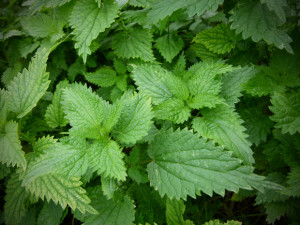Cruel weather, an imbalance of vitamins, and stress are all factors that contribute to common skin conditions. When not properly dealt with, skin conditions can leave unwanted and annoying discolorations and itching on the face and body.
While the natural treatments we share below will not eliminate common skin problems completely—like inflammation, itchy skin, or rashes—these best practices will help you treat and take control of your skin’s health.
Here are some habits that will help keep your skin clear and healthy.
1. Use Fewer Dairy Products
If you or someone you know has adult acne, eliminating dairy products from your diet is crucial. Adult acne occurs when the hair follicles plug up with oil and dead skin cells, creating a place for bacteria to grow.
While there are health benefits to consuming dairy products, they also contain proteins and hormones that contribute to stimulated acne growth. To see if dairy adversely affects you, try avoiding dairy products for a month. If your acne clears up, it’s likely due to the absence of dairy in your diet.
To counter the lack of dairy in your system, be sure to get your daily recommended dose of calcium, magnesium, and vitamin D.
2. Avoid High-Glycemic Eating
Consuming foods abundant in refined carbs, such as white flour and sugar, has unwanted consequences for your skin: inflammation and acne.
A study in BMC Dermatology used 88 participants (44 with acne and 44 without) and found those who had skin conditions were consuming 30% more refined carbs. Additionally, the participants with acne were eating more ice cream, milk, and dairy than those who didn’t have this skin condition. In another study, people with acne who went on a low-glycemic diet with more vegetables and whole grains saw significant improvements in their acne.
What should you eat instead of refined carbs? Consume proteins and nutrient-dense foods like green vegetables, eggs, meat, and fish. Also, remember to balance your diet with regular exercise and get a decent amount of sleep to keep your body refreshed and your skin healthy.
3. Take a 20-Minute Soak
Dry skin appears as a result of depleted moisture in the body. If you’re constantly exposed to warm weather, and if you don’t drink enough water, you’re likely to suffer from dry skin. Long-term dry skin can lead to more harmful conditions, such as skin tears, blisters, and scarring.
As you get older, you’re also more susceptible to dry skin. Your body produces less skin-lubricating oils. To counter your body’s decreased product of sebum, try taking a 20-minute bath each day.
Soaking your skin for 20 minutes a day helps keep your body moisturized. The consistent soak lets water flow in and out of your pores, ensuring they stay clean and clear.
Additionally, a 20-minute soak is even conducive to lowered levels of stress. You’re your stress is lower, you’re less likely to see consistent breakouts or rashes on your skin.
Keep these things in mind while bathing:
- Use little or no soap. Soap dries out your skin, so look for soap alternatives and natural body cleansers.
- Moisturize after bathing. By putting on lotion or a moisturizer after a bath, you maintain the moisture levels in your body for a longer period of time.
- Don’t bathe for too long! When your hands start to prune, your body has spent enough time soaking in the bath.
For additional natural ways to take care of your skin, give us a call at (704) 708-4404 or email us at info@carolinasnaturalhealth.com.
Photo Credit: WanderingtheWorld


